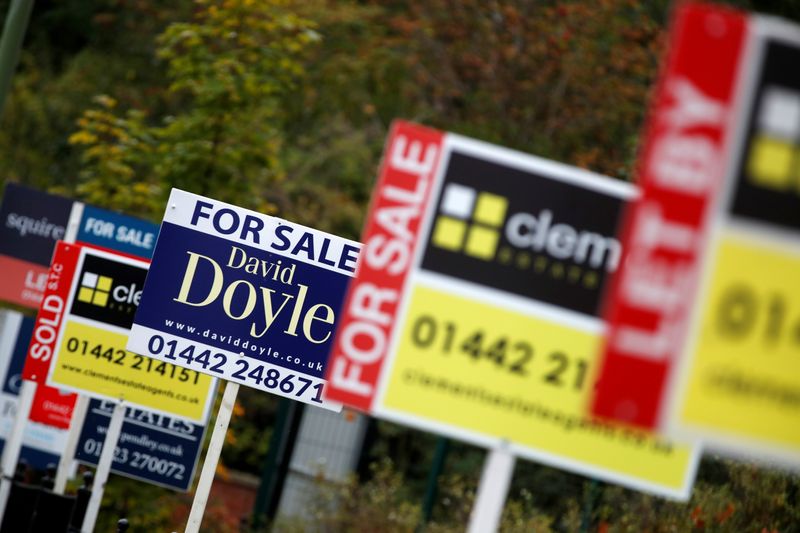By David Milliken
LONDON (Reuters) - The number of house purchases rose 21% in Britain last month, boosted by pent-up demand and a cut in transaction taxes, taking the total number of sales close to their pre-pandemic level.
The figures highlight the uneven nature of Britain's economic recovery from the COVID pandemic, with retail sales volumes now above pre-crisis levels but the outlook for jobs, investment and much of the hospitality industry still bleak.
Provisional tax data showed 98,010 house purchases in September, up from 80,790 in August and just below the number of sales recorded in February on a seasonally adjusted basis.
Compared with a year earlier, sales are down 0.7%.
The Bank of England estimates the overall economy at the end of September was still around 9% smaller than before the crisis, compared with a 20% quarterly hit during lockdown.
Britain's housing market had been showing increased momentum at the start of the year, before sales collapsed in April.
The release of pent-up demand when the lockdown ended was further fuelled by a temporary cut in stamp duty land tax in July, which Britain's finance ministry said would help support jobs elsewhere in the economy.
"This ranges from carpenters to cleaners, brickies and decorators, they can all benefit from each sale," finance minister Rishi Sunak said on Wednesday.
Official data for August showed average house prices were 2.5% higher than a year earlier, roughly in line with the growth rates before the pandemic.
The Office for National Statistics said this price data was largely based on transactions agreed before the tax cut, and a price index from mortgage lender Halifax reported a 7.3% annual rise in September, the biggest increase since 2016.
Lenders and real estate agents have also reported a shift in demand away from London and other large urban centres towards roomier rural or suburban property, in response to greater home working since the lockdown.

However, the ONS data showed prices in London rose faster than those in most other parts of Britain, up by 3.5% in the year to August.